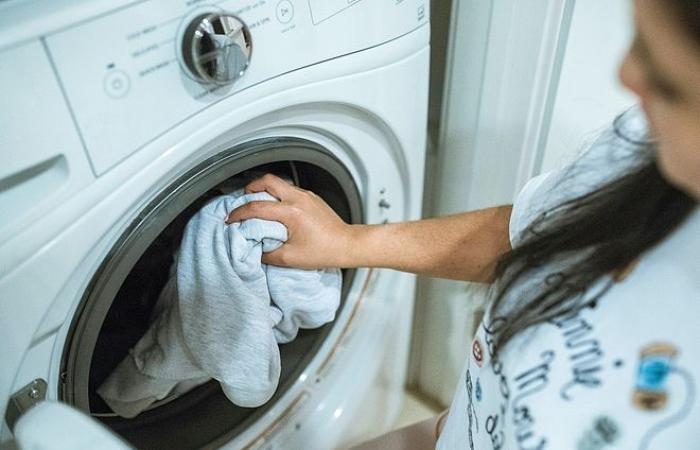The Competition Authority sanctions, for a total amount of 611 million euros, twelve vertical price agreements between ten manufacturers and two distributors in the sector of manufacturing and marketing of large and small household appliances. The goal was to counter the rise of competitors in e-commerce.
These agreements were implemented between February 2007 and December 2014. According to the Authority, their objective was to maintain higher sales prices, particularly in the face of the emergence of distributors selling on the internet competing with those with stores. The sanctioned companies are ten manufacturers, BSH, Candy Hoover, Eberhardt, Electrolux, Whirlpool (as successor to Indesit), LG, Miele, SEB, Smeg, Whirlpool and two distributors, Boulanger and Darty. Ten of these twelve companies did not dispute the facts and were granted the benefit of the settlement procedure.
The cartel practices were revealed in particular via several indices transmitted by the Directorate General for Competition, Consumer Affairs and Fraud Control (DGCCRF). They gave rise, in 2013 and 2014, to search and seizure operations and in 2015 to a leniency request filed by companies in the BSH group.
In 2016, facts relating to horizontal cartel practices were the subject of a separate procedure and led to a decision of December 5, 2018 sanctioning ten companies to the amount of 189 million euros.


Concerning the fine of 611 million euros, the ten manufacturers and two distributors concerned had implemented vertical practices for setting the retail sale price. More specifically, manufacturers communicated retail prices to distributors and monitored their correct application. They did not hesitate to resort to retaliatory measures such as delaying and stopping deliveries, setting up exclusive sales systems, etc. towards distributors who refused to comply with these price instructions.
These practices eliminated intra-brand competition at the time of the development of Internet sales, preventing consumers from benefiting from more attractive prices for the purchase of their small and large household appliance products.

The Authority describes the end of the 2000s as marked by the boom in online sales, particularly for small and large household appliances. In this context, ten manufacturers (BSH, Candy Hoover, Eberhardt, Electrolux, Indesit, LG, Miele, SEB, Smeg and Whirlpool) have reached an agreement, each individually, with their distributors, and in particular the two largest of them, Darty and Boulanger, to maintain artificially high sales prices.
Manufacturers and their “traditional” distributors selling mainly in stores thus wanted to limit the emergence of websites which marketed household appliances at “cut” prices, while guaranteeing high margins to distributors active on traditional distribution channels, particularly in stores.
Several distributors exclusively active on the internet such as WebAchatFrance or Maismoinscher testified to the Authority that manufacturers have, since 2009, put in place selective distribution systems which required, for example, distributors to have “ brick-and-mortar stores » or which prohibited the sale of certain products on the Internet. The references concerned, which should therefore not be found on the Internet, were grouped under the term “blacklist”.
Several distributors reported a general desire among manufacturers and suppliers to better control the retail prices of their products. Manufacturers, who were aware that they did not have the right to control the resale prices of their products, resorted to “ a coded language » to hide the price instructions. They systematically associated all their references with a “recommended” price, which was understood by the distributors as a price to be respected.
Manufacturers and suppliers monitored – sometimes daily – compliance by distributors with resale price guidelines for their products. This monitoring was carried out through the use of subscriptions to price collection tools on the Internet, in order to guarantee effective monitoring.
Furthermore, manufacturers and suppliers contacted their distributors, often orally, to ask them to raise resale prices. The objective was to reduce as much as possible the differences between the prices charged by traditional distributors and those on the Internet. Several online distributors point out that manufacturers sometimes resort to physical meetings because manufacturers are “afraid of being recorded on the phone and are wary of emails”.
This constant pressure on distributors to respect the “recommended” prices was achieved through the use of innuendo: “ if you want to receive the product, you know what to do » ; « there’s a new product that just came out, if you want it… ».
The Authority declares that in the event of non-compliance with the recommended resale price, the distributor could be subject to retaliatory measures, such as stopping or threatening to stop deliveries or even banning the sale of certain references, unless it respects the resale price level indicated to it.
The Authority emphasizes that traditional distributors, including the two main ones, Darty and Boulanger, participated fully in these agreements, essentially wishing to “preserve the value of their sale” by being assured that the products they sold would not end up significantly cheaper. elsewhere, and particularly online.
These distributors did not hesitate to control their competitors and ask manufacturers to act in the event of significant price differences. Darty and Boulanger could even demand compensation in the event of discrepancies observed in order to be able to align with competitors’ prices without reducing their margin. They asked manufacturers for “margin compensation” in the form of a reduction in their net purchase price for the affected products or for future purchases.
The Authority considers that these distributors, by their weight, could have been able to put an end to the anti-competitive practices but on the contrary, Darty and Boulanger applied the price instructions, thus allowing them to preserve their margins, and they also exercised real control of other distributors. They did not hesitate to point out to manufacturers those who did not respect the recommended prices. Thus, for example, in the context of a commercial negotiation with a manufacturer, Boulanger underlined the need to “become[tre] agree on the positioning to be taken on the product.
The Authority indicates that several online distributors confirm the weight of these two historic distributors and their influence on the behavior of manufacturers: “the alignment policy was essentially linked to the commercial policy of Darty which had more than 20% of the market for distribution”.
The Authority emphasizes that the parties used coded language because they were fully aware of the anti-competitive nature of their practices and this in a context of development of online sales of household appliances, which should have allowed consumers to benefit from the reduction in prices. distribution costs.
The practices have contributed to weakening the distribution sector, by strengthening the weight of the main players in place and, conversely, by penalizing certain distributors wishing to charge attractive prices, whose activity may have been thwarted by the measures put in place. implemented by manufacturers and suppliers.
As such, the Authority uses the estimates of a distributor who states that the vast majority, around 95%, of distributors present online at the start of the practices have disappeared or have been bought by traditional distributors.










